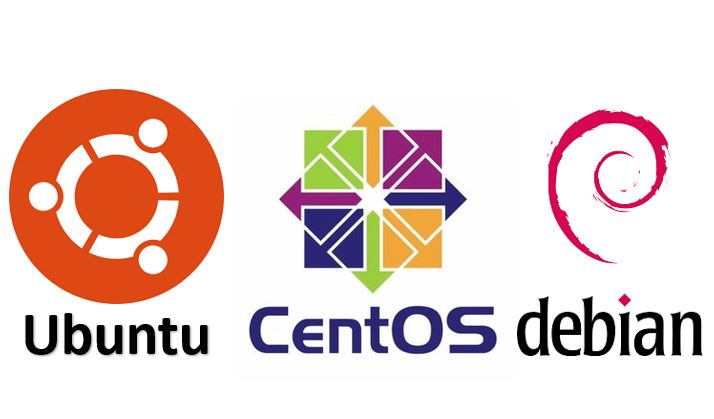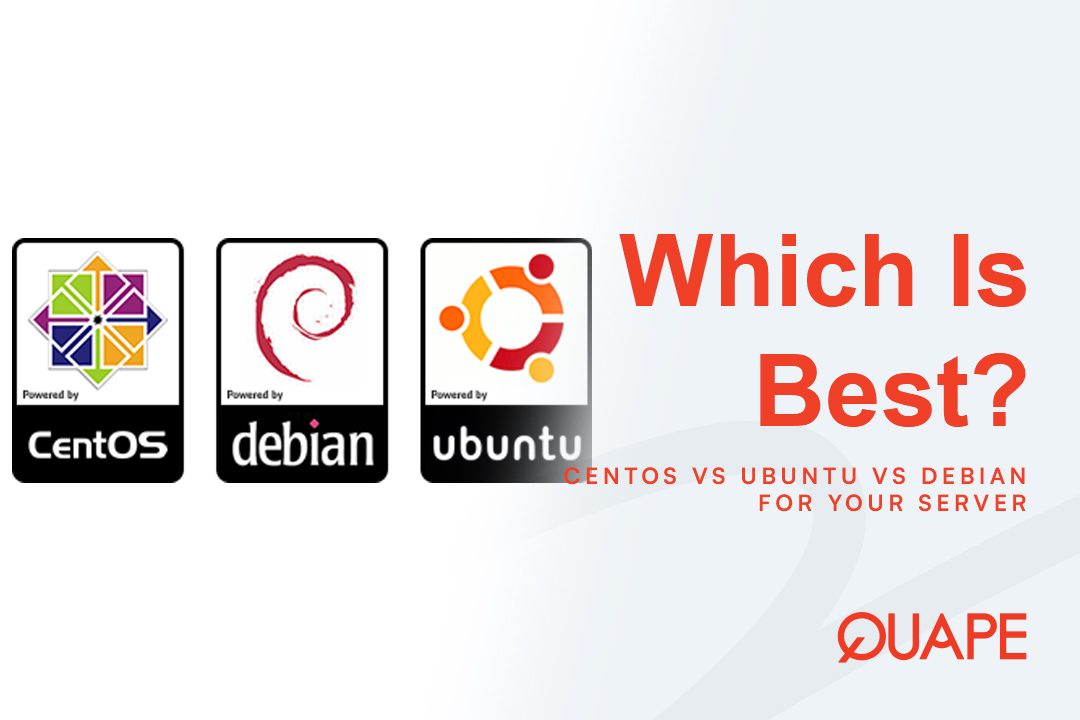When it comes to powering a web server, Linux is the undisputed king. Its stability, security, and open-source nature make it the preferred choice for data centers and hosting providers worldwide. But once you’ve chosen Linux, you’re faced with another crucial decision: which distribution to use? The three most popular choices for servers are CentOS, Ubuntu, and Debian. Each has its unique philosophy, package management, and community support. Choosing the right one for your server can significantly impact your performance, security, and ease of management.
This guide will provide a detailed comparison of CentOS vs Ubuntu vs Debian to help you determine which Linux OS is the best fit for your specific server needs.
Table of Contents
ToggleAt a Glance: Key Differences
| Feature | CentOS | Ubuntu Server | Debian |
| Primary Use | Enterprise-grade, stable server environment | General-purpose server, cloud, and desktop | Stable, universal OS for various uses |
| Package Manager | yum (now dnf) | apt | apt |
| Update Cycle | Slow and stable (long-term support) | Frequent updates, with LTS releases every 2 years | Very stable, slower updates |
| Commercial Support | Formerly Red Hat, now community-driven | Canonical (commercial entity) | Community-driven |
| Stability | Very high | High | Extremely high |
| User Base | Enterprise and large corporations | Developers, startups, and general users | Advanced users, hosting providers |
In-Depth Comparison

1. CentOS
CentOS (Community Enterprise Operating System) was a stable, open-source version of Red Hat Enterprise Linux (RHEL). While the original CentOS project has shifted to CentOS Stream, many legacy server environments still rely on it. Its main advantage is its rock-solid stability.
- Pros:
- Unmatched Stability: Built on RHEL’s codebase, CentOS packages are thoroughly tested and rarely break. It’s the “set it and forget it” OS for mission-critical applications.
- Long-Term Support: CentOS releases have a long lifespan, which is ideal for enterprise environments that need a stable platform for years without major upgrades.
- Security: As a community-driven version of a commercial OS, it benefits from a strong focus on security and timely patches for major vulnerabilities.
- Cons:
- Outdated Packages: The focus on stability means software packages are often older. If you need the latest versions of PHP, Python, or other software, you’ll need to use third-party repositories.
- Shifting Landscape: The end of traditional CentOS in favor of CentOS Stream has led some users to migrate to alternatives like AlmaLinux or Rocky Linux, which aim to replicate the old CentOS model.
Best for: Enterprises, large-scale hosting environments, and any business that prioritizes stability over cutting-edge features. It is a workhorse for long-term projects.
2. Ubuntu Server
Ubuntu is perhaps the most well-known Linux distribution, thanks to its user-friendly desktop version. Ubuntu Server takes that same user-friendliness and applies it to the server environment. It strikes a balance between stability and modernity, making it a popular choice for many.
- Pros:
- Ease of Use: Ubuntu has a vast library of tutorials and a strong community, making it easier for beginners to get started. Its
aptpackage manager is intuitive and powerful. - Up-to-Date Packages: It offers more recent software versions than CentOS and Debian, which is great for developers who need the latest tools.
- Excellent Documentation: The Canonical team and the community provide extensive documentation and support, making troubleshooting a breeze.
- Large Community: A huge user base means you’ll almost always find an answer to your questions in a forum or a tutorial.
- Ease of Use: Ubuntu has a vast library of tutorials and a strong community, making it easier for beginners to get started. Its
- Cons:
- Less Stable than Debian: While generally stable, its faster release cycle means there’s a slightly higher chance of encountering bugs or issues compared to Debian.
Best for: Startups, developers, and businesses that need access to modern software. Its user-friendliness makes it an excellent choice for general-purpose servers.
3. Debian
Debian is the foundation for many other Linux distributions, including Ubuntu. It is renowned for its commitment to free software and its incredible stability.
- Pros:
- Ultimate Stability: Debian’s “Stable” branch is legendary for its reliability. Packages undergo rigorous testing before being released, ensuring a bug-free environment.
- Strong Foundation: Because it is the foundation for so many other distributions, Debian has a massive repository of over 60,000 packages.
- Strict Adherence to Standards: It follows open-source standards meticulously, which leads to a clean and predictable environment.
- Cons:
- Outdated Software: The dedication to stability means software packages are often much older than in Ubuntu, and even older than some CentOS versions.
- Steeper Learning Curve: While not as difficult as some other distributions, Debian’s minimal install and manual configuration can be a challenge for new users.
Best for: Web hosting providers, system administrators, and advanced users who need an extremely stable and predictable server environment.
The Verdict: Which One Should You Choose?
The best Linux OS for your server depends on your specific needs and priorities.
- Choose CentOS if you are an enterprise or a large-scale business that needs a “fire and forget” system with long-term stability and security. If your applications don’t require the latest software versions, CentOS (or a successor like Rocky or AlmaLinux) is an excellent choice.
- Choose Ubuntu if you are a developer, a startup, or a business that needs a balance of stability and modern software. Its extensive documentation and ease of use make it the most versatile and accessible option.
- Choose Debian if you are a seasoned sysadmin or a hosting provider who demands the highest level of stability and control, and you don’t mind manually installing newer software when needed.
Ultimately, all three are powerful and reliable choices. The key is to select the one that aligns with your technical expertise and the long-term goals of your project.
Looking for a web hosting provider that gives you the power and flexibility to choose the right OS for your server? Quape, a leading web hosting and domain company in Singapore, offers a range of high-performance servers, including Dedicated Server and VPS Hosting solutions. With Quape, you have the freedom to select your preferred Linux distribution, including CentOS, Ubuntu, and Debian, and our expert support team is ready to help you every step of the way. Explore Quape’s server solutions today and find the perfect OS for your business.
- What Is Apache? A Simple Guide for Beginners - October 27, 2025
- What Is Nginx? A Simple Guide for Beginners - October 27, 2025
- What Is Drupal and How to Install It Easily - October 24, 2025




